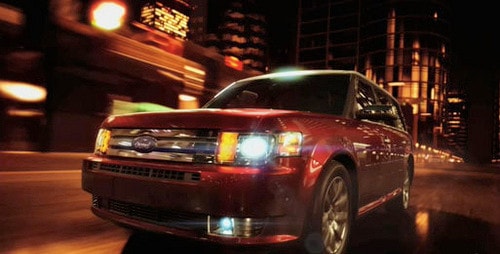Making videos on the computer has proved to be extremely cost-efficient for automakers during the financial downturn (and not only). A popular trend among car manufacturers nowadays is that they start to use the virtual technology to promote their models with low costs.
According to The Detroit News, the film industry has recently made its debut at Metro Detroit as the region has been considered in the past years as the perfect territory for a niche industry industry of computer animators and digital special effects companies hoping to attract the Detroit Big Three's interest.
And so they did if we are to judge by TV ads like last year's commercial for Ford Motor Co.'s Flex crossover, a sleek 30-second video in which the camera zooms in, around and through the vehicle as it speeds along a computer-animated streetscape.
"One thing computer-generated imagery does, is defy physics," said Tom Stone, co-founder and executive vice president of Birmingham-based SpeedShape, the firm that produced images for the Flex commercial. "In the past, they had to destroy cars, cut off the tops" to get shots of the interior, Stone added. "With this technology you don't have to do that."
Because computer images which make the commercial are cheaper than live film shots, more and more automakers have started to take into consideration this new technology. That's how a grouping of new tech firms have developed in Metro Detroit and many of them are already working with advertising agencies for the auto industry. The firms are specialized in producing all-digital images for use in vehicle promotions, ranging from prints to interactive features on the automaker's Web site.
Stone, a former design sculptor for General Motors Corp. who helped establish SpeedShape in 2003, believes that Metro Detroit has become a "hotspot" for this sort of computer-rendering work and many companies want to be closer to the auto industry. For instance, Armstrong-White Inc. a special effects and entertainment studio in Bloomfield Hills built Chrysler LLC's first "virtual garage," a line up of 68 vehicles that were all digitally rendered using engineering files. In addition, the firm has collaborated with Detroit Big Three, as well as with Japanese car manufacturers like Toyota and Honda.
That being said, the Detroit Three shouldn't be facing problems with the costs for advertising. Long live the virtual technology!
According to The Detroit News, the film industry has recently made its debut at Metro Detroit as the region has been considered in the past years as the perfect territory for a niche industry industry of computer animators and digital special effects companies hoping to attract the Detroit Big Three's interest.
And so they did if we are to judge by TV ads like last year's commercial for Ford Motor Co.'s Flex crossover, a sleek 30-second video in which the camera zooms in, around and through the vehicle as it speeds along a computer-animated streetscape.
"One thing computer-generated imagery does, is defy physics," said Tom Stone, co-founder and executive vice president of Birmingham-based SpeedShape, the firm that produced images for the Flex commercial. "In the past, they had to destroy cars, cut off the tops" to get shots of the interior, Stone added. "With this technology you don't have to do that."
Because computer images which make the commercial are cheaper than live film shots, more and more automakers have started to take into consideration this new technology. That's how a grouping of new tech firms have developed in Metro Detroit and many of them are already working with advertising agencies for the auto industry. The firms are specialized in producing all-digital images for use in vehicle promotions, ranging from prints to interactive features on the automaker's Web site.
Stone, a former design sculptor for General Motors Corp. who helped establish SpeedShape in 2003, believes that Metro Detroit has become a "hotspot" for this sort of computer-rendering work and many companies want to be closer to the auto industry. For instance, Armstrong-White Inc. a special effects and entertainment studio in Bloomfield Hills built Chrysler LLC's first "virtual garage," a line up of 68 vehicles that were all digitally rendered using engineering files. In addition, the firm has collaborated with Detroit Big Three, as well as with Japanese car manufacturers like Toyota and Honda.
That being said, the Detroit Three shouldn't be facing problems with the costs for advertising. Long live the virtual technology!
